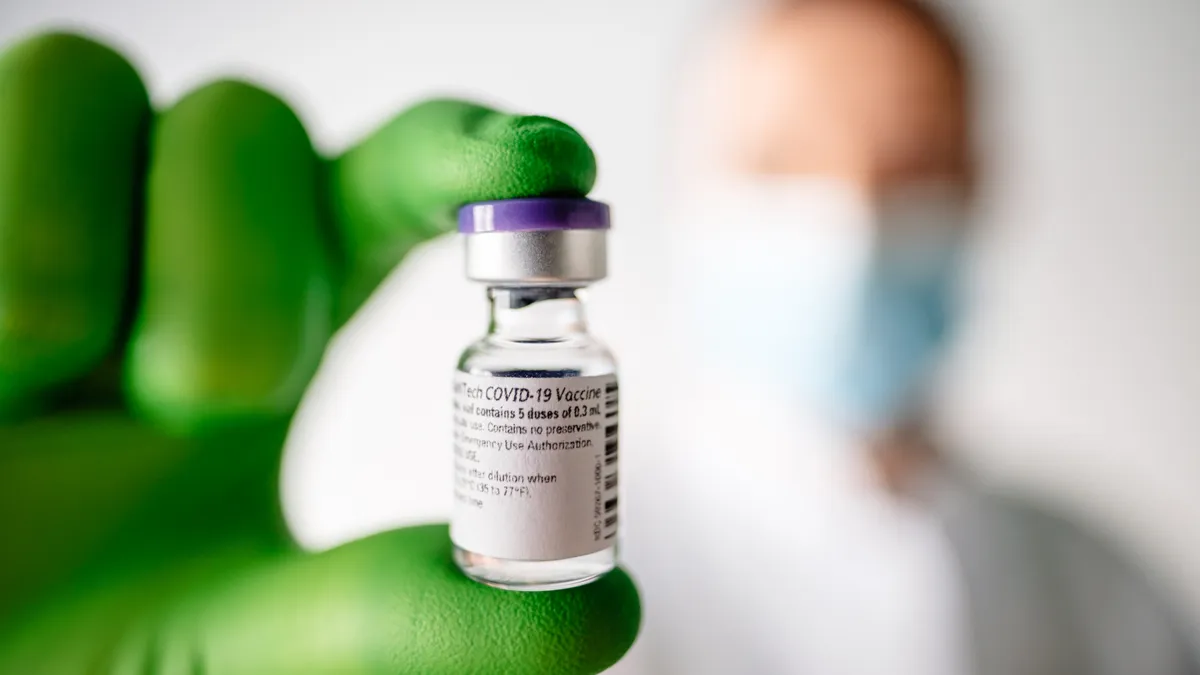Dive Brief:
-
Colleges shouldn't anticipate reaching herd immunity levels against the coronavirus anytime soon, especially given the slow rollout of the vaccine, health experts said.
-
In the meantime, schools should continue employing safety measures — such as mask-wearing, handwashing and social distancing — even if some people on campus are vaccinated.
-
It's also key to inform students about what is known and still unknown about the vaccine, as well as provide low-risk ways for them to socially interact, experts said.
Dive Insight:
Herd immunity occurs when enough people have become immune to a virus, either through vaccination or recovering from an infection, that its spread becomes unlikely. The Centers for Disease Control and Prevention does not yet know what share of people would need protection from the coronavirus to achieve herd immunity or how long such a protection lasts, a CDC spokesperson said in an email to Higher Ed Dive.
Anthony Fauci, the nation's top infectious disease official, said last month that the U.S. may return to a "degree of normality" once 70% to 85% of the population is vaccinated. Still, herd immunity levels vary by disease, with some requiring as much as 95% of the population to be vaccinated to reach the threshold.
In the meantime, health experts said colleges should continue to enforce strict social distancing and mask-wearing into the fall. "Universities need to keep in place the plans that they have now," said Audrey Pettifor, an epidemiologist at the University of North Carolina at Chapel Hill.
Schools should inform students that researchers don't yet know whether people who are vaccinated can be carriers of the coronavirus, said Leana Wen, a public health professor and emergency physician at George Washington University, in Washington, D.C. "We have to assume right now that you are," Wen said. "This is possible and even likely."
Another unknown is how long immunity to COVID-19, the disease caused by the virus, lasts, potentially making herd immunity a "moving target," the CDC spokesperson wrote. The agency recommended that colleges test students for the coronavirus when they return to campus and throughout the semester to swiftly reduce transmission.
It's also unclear how many people will be willing to get the vaccine. Sixty percent of U.S. adults said in November they would definitely or probably get it, up from 51% in September, according to a poll of nearly 13,000 adults by the Pew Research Center.
Even if a large share of a college's population has been vaccinated, officials will need to monitor vaccination levels in their surrounding communities. Colleges should view vaccines as one piece of a multipronged approach to fighting the coronavirus, Pettifor said, adding that they will have to rely on testing and social distancing more in regions where many people aren't inoculated.
Colleges also should offer lower-risk opportunities to socialize. "Telling (students) you can't do anything is not going to be effective," Pettifor said. Giving them safer options "is going to be important to continue as vaccine coverage improves."















